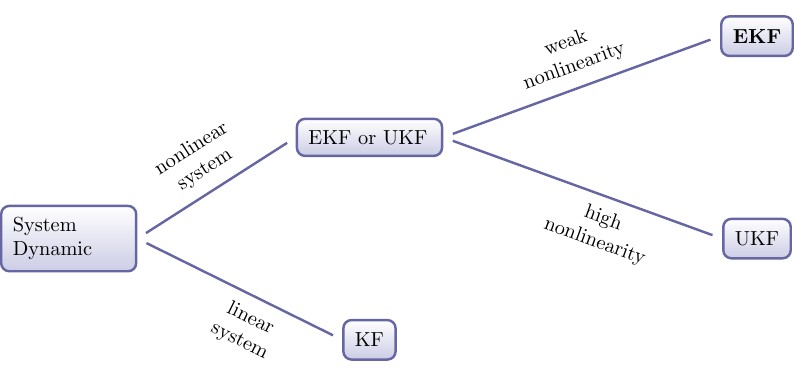The answer is simple: if your system is linear, then a (regular) Kalman filter will do just fine. A very brief summary of the differences between the two:
The extended Kalman filter (EKF) is an extension that can be applied to nonlinear systems. The requirement of linear equations for the measurement and state-transition models is relaxed; instead, the models can be nonlinear and need only be differentiable.
The EKF works by transforming the nonlinear models at each time step into linearized systems of equations. In a single-variable model, you would do this using the current model value and its derivative; the generalization for multiple variables and equations is the Jacobian matrix. The linearized equations are then used in a similar manner to the standard Kalman filter.
As in many cases where you approximate a nonlinear system with a linear model, there are cases where the EKF will not perform well. If you have a bad initial guess of the underlying system's state, then you could get garbage out. In contrast to the standard Kalman filter for linear systems, the EKF is not proven to be optimal in any sense; it's merely an extension of the linear-system technique to a wider class of problems.

